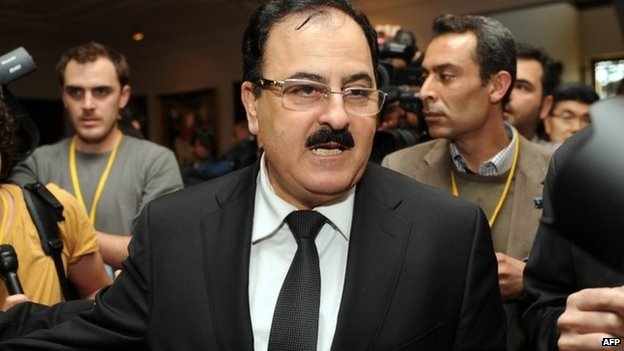Free Syrian Army replaces chief-of-staff Salim Idris
The leader of the Western- and Gulf Arab-backed Free Syrian Army (FSA) has been sacked and replaced by a more experienced field commander.
Col Abd al-Ilah al-Bashir will succeed Brig Gen Salim Idris as chief-of-staff of the FSA’s Supreme Military Council.
A spokesman said the decision was taken due to the “ineffectiveness” of the command and the need to “restructure”.
Over the past year, the SMC has lost influence to Islamist rebel groups, some of them linked to al-Qaeda.
The change in command comes after a second round of peace talks in Geneva between the Syrian government and opposition failed to make any significant breakthrough.
US Secretary of State John Kerry on Monday blamed President Bashar al-Assad’s representatives for stalling the negotiations and urged Russia to stop supplying Mr Assad’s forces with weapons.
“The regime stonewalled. They did nothing except continue to drop barrel bombs on their own people and continue to destroy their own country. And I regret to say they are doing so with increased support from Iran, from Hezbollah and from Russia,” he told reporters in Jakarta.
‘Relief’
The decision to replace Gen Idris was made on Sunday after a meeting of the Supreme Military Council (SMC) in Turkey.
A statement said the move was prompted by the “ineffectiveness of the command in the past few months” and “to provide leadership for military operations against the criminal regime and its allies from terrorist organisations”.

Gen Idris was not believed to have overall operational command of FSA-aligned forces inside Syria
Col Bashir was previously head of the rebel military council in the southern province of Quneitra. He deserted from the Syrian army in 2012 and his son was killed in fighting at the beginning of the year, according to the FSA’s Facebook page.
The main opposition alliance, the National Coalition, reportedly described the news of Col Bashir’s appointment as a “relief” and expressed hope that he would strengthen the role of the FSA.
An opposition source told the AFP news agency that Gen Idris had faced criticism for failing on the battlefield, including “errors and carelessness in combat” and “poor distribution of weapons” among rebel brigades. He was also accused of distancing himself from his fighters’ “concerns”.
Gen Idris, who had served in the Syrian army’s Corps of Engineers, was appointed chief-of-staff of the SMC in December 2012, after it was formed to encourage a centralised rebel leadership.
However, analysts say the FSA has remained a loose network of brigades rather than a unified fighting force, with the general serving more as a spokesman and conduit for foreign funding and arms shipments, rather than the overall operational commander.
The BBC’s Lyse Doucet speaks to men being held for questioning after being evacuated from besieged rebel-held areas of Homs last week
He suffered a further blow in November when seven leading rebel groups, including several that made up most of the FSA fighting force, declared that they were forming the Islamic Front.
In December, the new alliance announced that it had withdrawn from the command of the SMC and then drove SMC-aligned forces out of their headquarters in the northern province of Idlib, prompting the US and UK to suspend “non-lethal assistance”.
Groups linked to al-Qaeda, including the al-Nusra Front and Islamic State in Iraq and the Levant, have also emerged as potent forces.
Meanwhile, government forces backed by the Lebanese Shia Islamist movement Hezbollah and Shia fighters from Iraq and Iran have capitalised on the divisions, recapturing strategically important areas in and around Damascus, Homs and Aleppo since mid-2013.
Last week, a UN-brokered ceasefire in Homs allowed aid workers to deliver food and medicine to rebel-held areas that have been under siege for more than a year, and evacuate more than 1,000 people.
BBC



